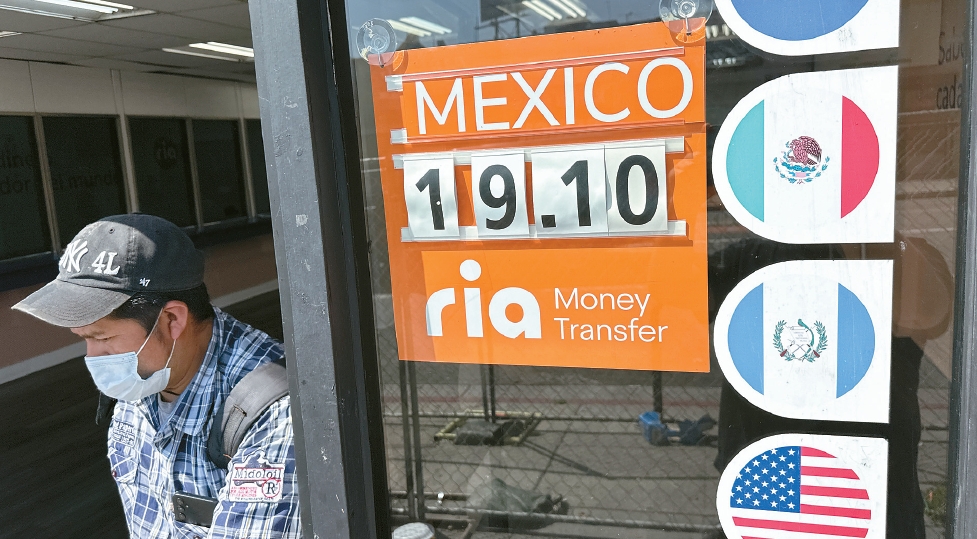A provision imposing a 3.5% remittance tax on non-citizens has passed the House as part of a broader tax reform bill backed by the Trump administration, prompting strong opposition from immigrant groups and financial organizations. The new tax would apply to international money transfers sent by individuals who are not U.S. citizens, including visa holders and green card holders.

If the bill becomes law, the remittance tax will take effect on January 1, 2026. The Trump administration estimates the tax could generate $22 billion in revenue by 2034, averaging $2.7 billion annually. The original version proposed a 5% tax, but it was reduced to 3.5% before passage.
Immigrant and financial groups criticize the tax
Critics argue the tax unfairly targets legal immigrants. Visa holders and lawful permanent residents frequently send money to family abroad and already pay remittance service fees. The new tax would further increase their financial burden.
A recent survey shows that 14% of U.S. households use international remittance services. That number underscores the widespread impact the tax could have on immigrant communities.
The Fintech Association (FTA), which represents money transfer providers, condemned the measure. “Remittance services are not just financial transactions — they’re lifelines for families,” the group said in a statement. “This law is regressive and unjustified from a policy standpoint.”
Experts warn of unregulated alternatives and business losses
Experts say the tax may push senders toward informal transfer networks or cryptocurrency to avoid the fee. That shift could increase financial crime and reduce oversight of cross-border money flows.
Small businesses like convenience stores in cities such as Los Angeles, which offer remittance services, are also expected to suffer losses as customers turn to other channels.
Hyunseok Kim (46, Los Angeles), a green card holder, said he would seek alternatives if the law takes effect. “It feels like another form of discrimination against lawful residents who already pay taxes,” he said.
Some opponents also argue the law amounts to double taxation, since the money being transferred was already taxed as income and would now face a second levy plus fees.
Jongwon Lee, an attorney with minority rights nonprofit ACOM, warned that the tax could harm both immigrant households and foreign economies. “It could also hurt overall U.S. consumer spending,” he said.
BY BRIAN CHOI [choi.inseong@koreadaily.com]
![Troublesome delivery robots damage gardens, snarl streets Delivery robots in urban areas including LA Koreatown and Hollywood have been involved in a string of incidents, blocking fire engine responses, crossing police lines at active scenes, and colliding with homes and motorcycles. [KTLA • Reddit capture]](https://www.koreadailyus.com/wp-content/uploads/2026/02/0226-delivery-robot-compile-100x70.jpg)
![Nonprofit leaders accused of diverting millions meant for the vulnerable Judy Baca, who faces allegations of embezzling $5 million, participates in work on “The Great Wall of Los Angeles” mural in 2023. [Sangjin Kim, The Korea Daily]](https://www.koreadailyus.com/wp-content/uploads/2026/02/0226-nonprofit-1-100x70.jpg)
![Family of army veteran killed in San Antonio shooting launches fundraiser A screenshot of the GoFundMe fundraising page created for Kyung Chang Lee. Donations are being collected to support the family of Lee, who was killed in the San Antonio, Texas, shooting. [GoFundMe capture]](https://www.koreadailyus.com/wp-content/uploads/2026/02/0225-KyungChangLee-100x70.jpg)
![Cartel leader’s killing sparks unrest, prompts Koreans to reconsider Mexico trips Downtown Guadalajara in Mexico’s state of Jalisco, which resembled a war zone on February 22 amid arson and other violence by drug cartel members, appears quiet on February 24. The area, usually crowded with tourists and residents, saw a sharp decline in foot traffic and public transportation use. [Pablo Lemus Navarro/X account]](https://www.koreadailyus.com/wp-content/uploads/2026/02/0225-Mexico-100x70.jpg)